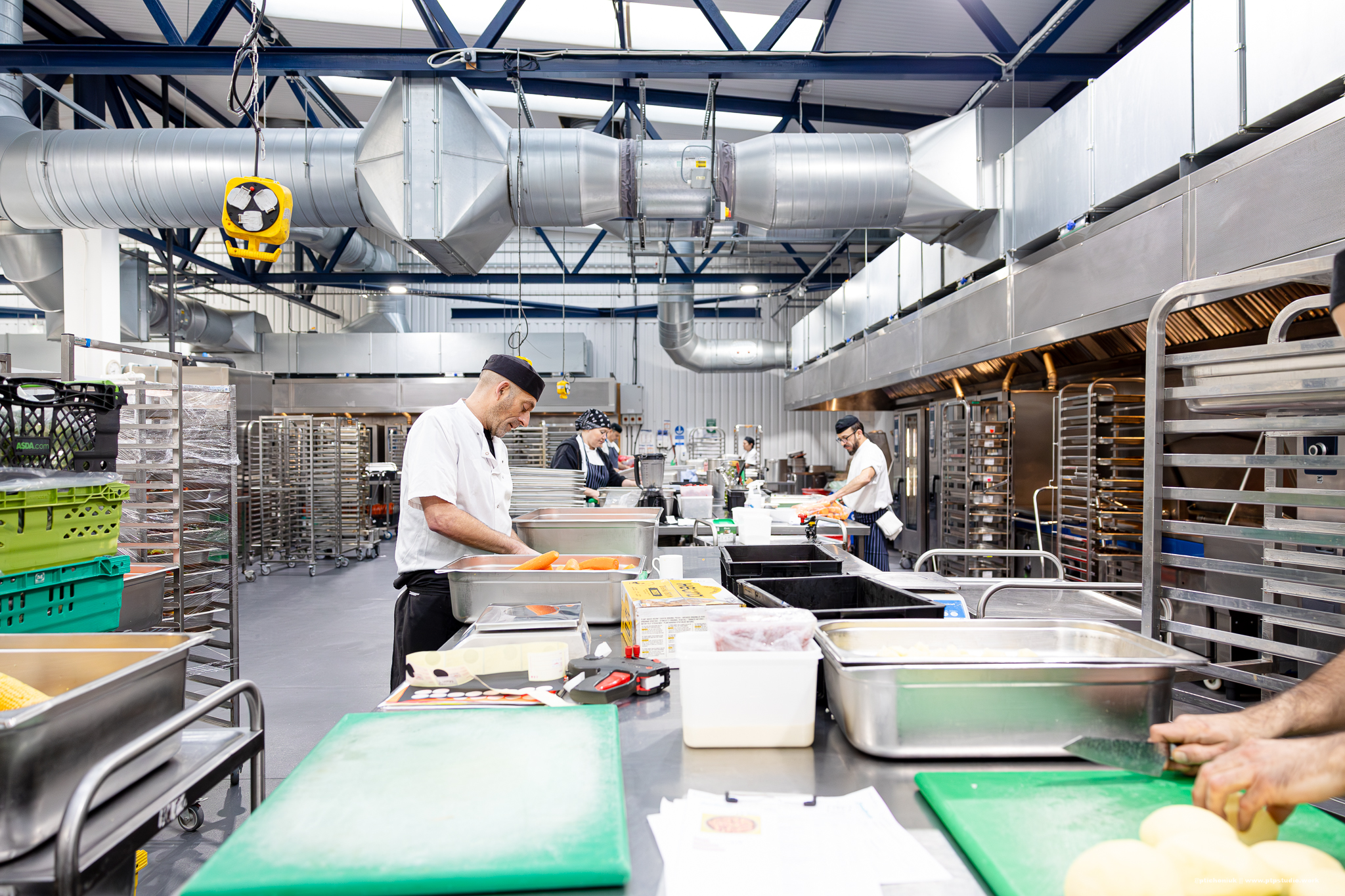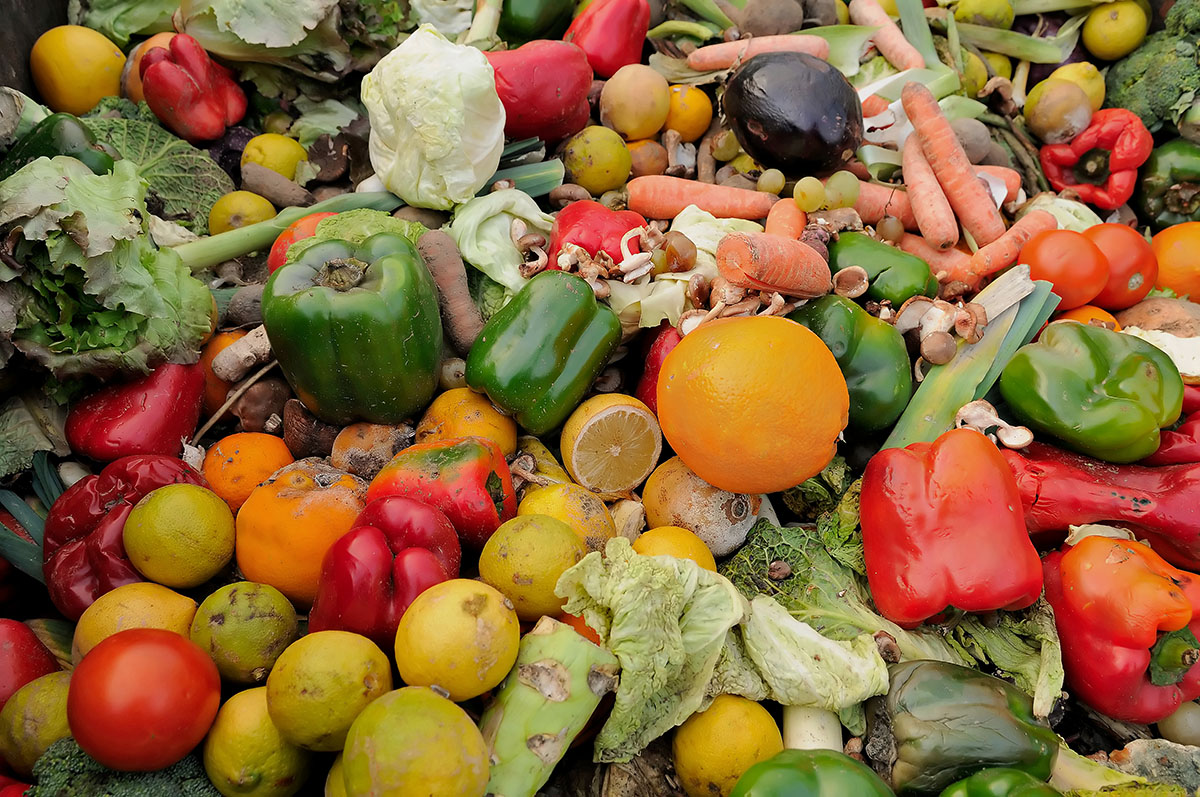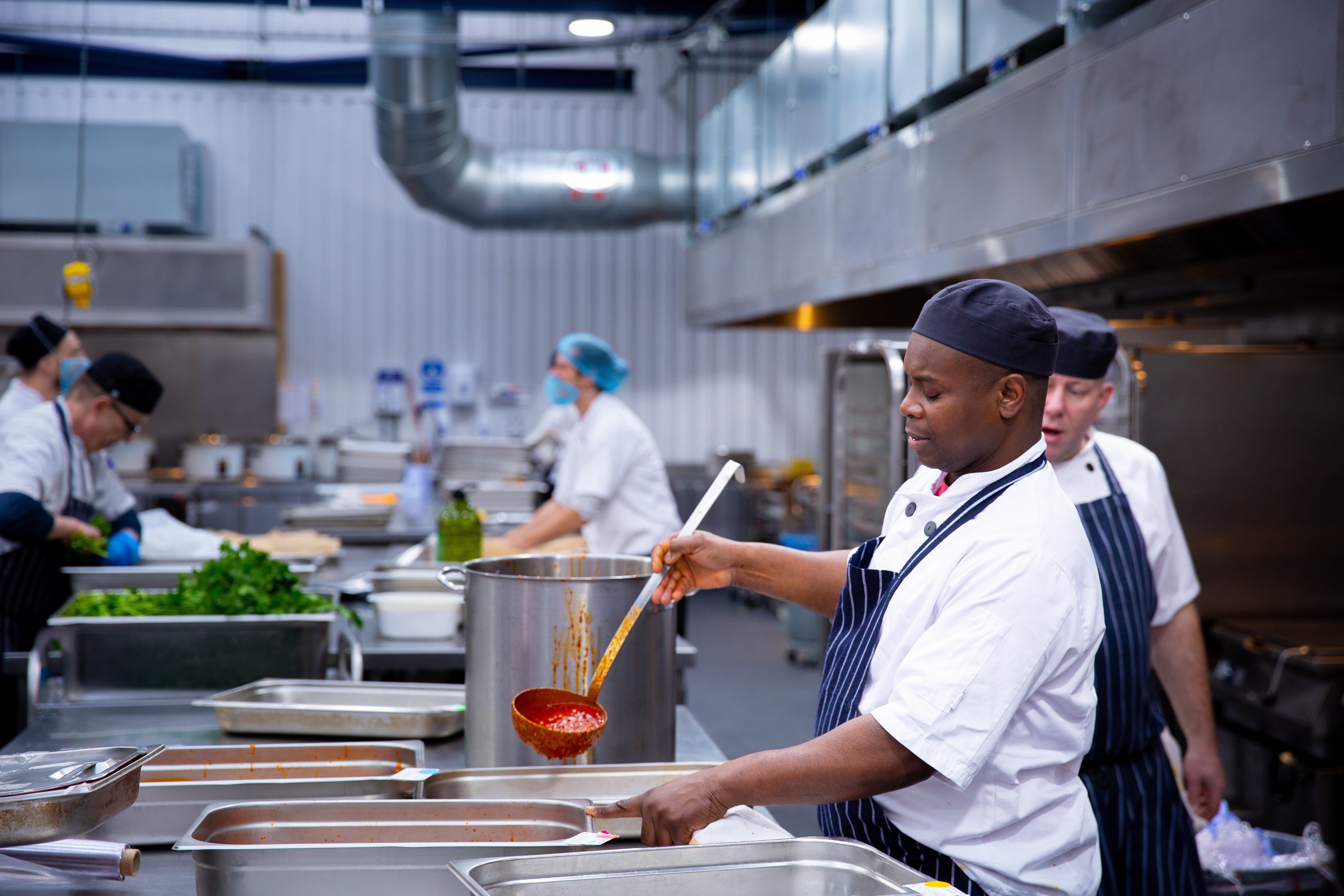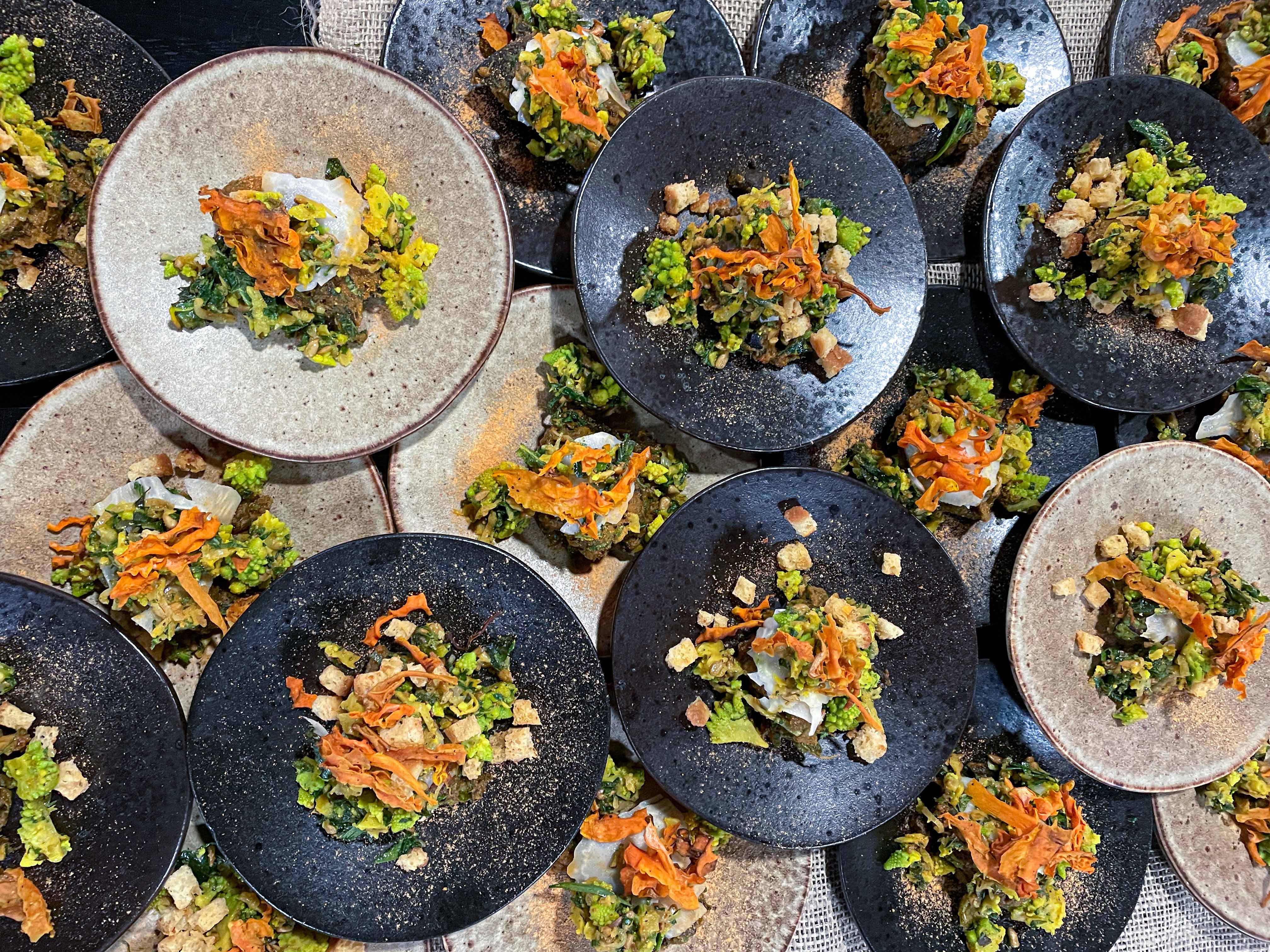What percentage of all the global food produced goes to waste? 10%? 20%? 30%?
Nope... 40% of the world's food is uneaten, and 783 million people face chronic hunger.
Something has gone very wrong in the world, and it needs fixing.
Food Waste Action Week is a chance for us all to take a step back and consider how we can do our bit to tackle the rotten issue of food waste.
At Fooditude, we're not perfect. Cooking for thousands of people daily creates challenges related to food waste. We are part of the problem but also have a chance to be part of the solution.
So, how can Fooditude innovate to reduce the amount of food waste generated from feeding people at work in London? Kate Page, Sustainability Manager at Fooditude, works behind the scenes across the team and with our office clients to find and implement solutions.
We've decided to share what we've been up to in combating food waste. Fingers crossed, you can take some of our ideas here and incorporate them into your strategies to cut down on food waste.
Because when it comes to sustainability, transparency is vital. As our sustainability accreditors, Planet Mark always tells us, "Measure, Engage, Communicate"
How is Fooditude tackling food waste?
Food Waste Insights with Power Business Intelligence
To help us find areas for improvement, we have begun collecting and measuring food waste data from our clients using our unique Power BI system. This system allows us to review insights into food waste and use this data to develop more effective practices in improving portion control to keep food wastage to as little as possible.
One step at a time
Taking a more considered, phased approach to implementing company policy is best. We are implementing the programme, one client site at a time. By taking a more staggered approach, we plan to build a more robust system that leads to better data and insights.
Angry Monk: Save the surplus
Introducing Angry Monk: our dedicated anti-food waste partners.
They are a locally-based wholesaler dealing solely with rescued surplus fruit and vegetables. But don't get any ideas that 'surplus' means 'less fresh': the ingredients we get from Angry Monk are consistently high-quality and at their best. It's a double win: we avert the tragedy of wasted food and cook with top-notch produce.
Our latest impact report from Angry Monk shows that by ordering surplus between March 2022 and February 2024, we saved:
- 36,719 KG of CO2 emissions (equivalent to 1,469 trees!)
- 10,606,072 litres of water (equivalent to over 2M toilet flushes!)
Knife Training with Chef Matt
Holding regular knife training sessions in our central kitchen, Matt Byne has taught our chefs some top tips on cutting our fresh produce and the most effective way to keep our food prep waste to a minimum.
Our remaining food prep waste goes straight to the Ferm. On a tight schedule, our chefs need to practice these knife techniques 2,500 meals a day—that's a lot of food prep!
Adopting new habits can be tricky, but once our chefs have incorporated their food-saving knife skills into their workflow, they will continue to use a more food-efficient chopping method for years to come.
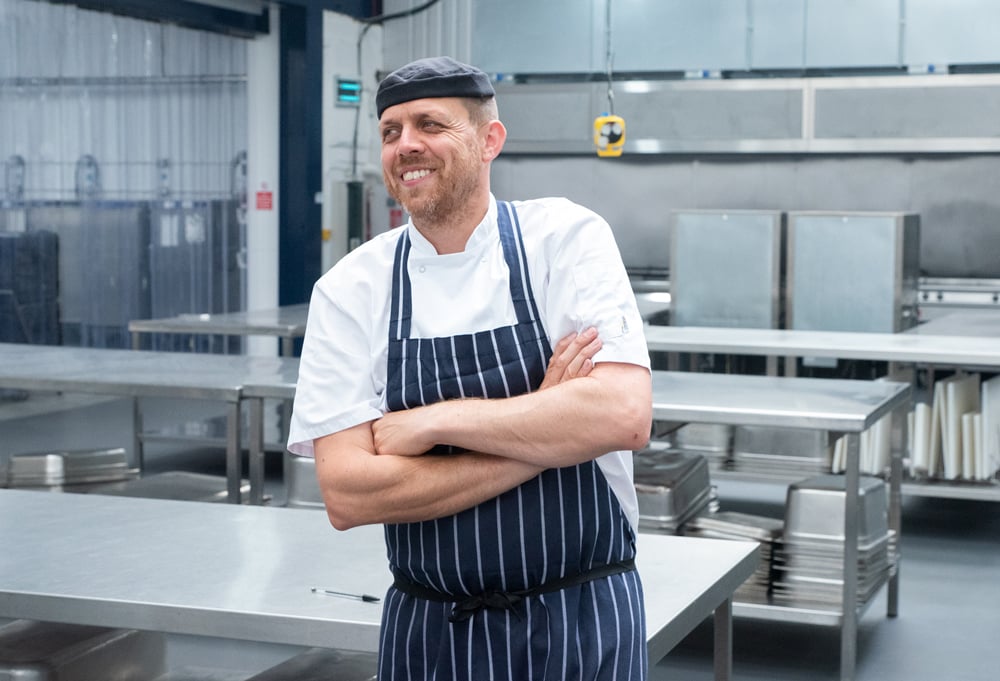
Doing it right …while on the clock
Now, let's examine our waste disposal guidelines at our central production kitchen. Unmindfully disposing of waste is too easy when working in a fast-paced environment. Chefs must meet high demands and focus on getting the job done.
"I don't have time to sort through waste!" one might think. WRONG! It's a recipe for disaster! Waste management in a sustainability-driven kitchen is vital. Incorrect waste disposal contributes further to environmental impact.
Our Sustainability Manager, Kate Page, has recently introduced a new, easy-to-follow waste segregation system in our central kitchen to ensure proper waste management. Kate is helping to equip our kitchen team with two important things:
2. How to effectively dispose of waste so the team can get quickly back to cooking tasty food
In the kitchen: waste problem/waste solution
The Problem
Waste piles up rapidly when the kitchen is at it's busiest. We're talking tissues, dirty gloves, food wrapping, vegetable cut-offs—you name it!
The Solution
We've made things more straightforward at the 'stations' where our chefs cook. There are now two colour-coded bins in reach of our chefs whilst they cook:
- Red box table-top bins for general waste
- A large grey bin for recyclable waste, such as hard plastics, cardboard, and paper
By making disposing of waste responsibly seamless and easy for our chefs, Fooditude's sustainable waste management is a whole load more effective.
Kate's Waste Awareness Workshop
Kate engaged chefs in a group activity: a mock trial of sorting kitchen waste correctly and fast! Afterwards, a quiz was held to distinguish between General Waste and Recycling. The main takeaway from this session was that disposing of waste responsibly doesn't prevent us from cooking top-notch meals to tight deadlines.
When educating people about sustainable practices, there's nothing quite like face-to-face training to make the new learnings stick like honey.
How are your bins looking? Why not take a quick snoop and ask yourself, could my team benefit from this workshop?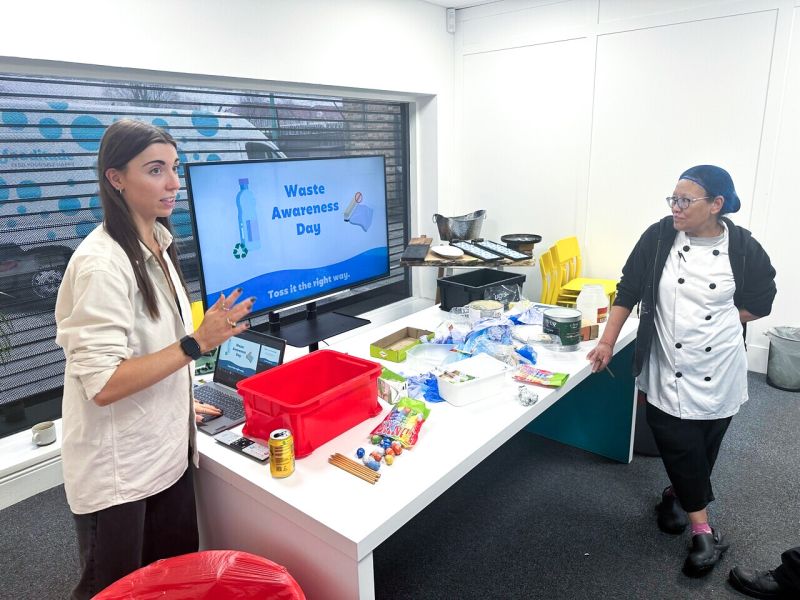
Food waste in industry
Did you know that food waste is one of the main contributors to poverty and climate change? Around 8-10% of the world's greenhouse gas emissions result from food waste. It should be on all our agendas to take action.
Consumers in rich countries waste nearly the same amount of food as sub-Saharan Africa's whole net food production annually.
In developing countries, 40% of food waste occurs during production due to poor storage, spoiling and pests.
Meanwhile, in developed countries, there is another 40%+ of food waste in retail and consumption. This issue is often created from perfectly edible food being tossed due to consumers over-buying - and that's an outrage!
Wasting food can also mean wasting all the resources used to create it. The world is using all that water and energy to produce food destined to become waste.
But it doesn't stop there.
Even when waste ends up in landfills or incineration, further damaging issues such as water, soil, and air pollution occur. When food waste rots in landfills, it emits methane, a gas much more potent than carbon dioxide.
Businesswaste.co.uk reports that the UK disposes of around 9.5 million tonnes of food waste in one year—equivalent to the weight of 47,500 blue whales! This is happening while the UK's food poverty population currently sits at 8.4 million people…
So, what is Fooditude doing about it?
Our mission
In the next six months, we're dedicated to enhancing our sustainable practices with a focus on reducing food waste. We aim to make a positive impact through data-driven approaches, workshops, and partnerships with anti-food waste suppliers.
Our Goals
- Achieve a 50% reduction in food waste by 2025.
- Integrate data collection and waste pattern monitoring into our daily routines to drive continuous improvement.
- Reduce general waste by 22% and increase recycling rates by 8%.
"Long term sustainable change requires a shift in our approach as a company. By integrating data collection and waste pattern monitoring into Fooditude's daily routines, we're not just enabling ways to reduce our environmental impact, we're empowering continuous improvement for the future. This data-driven approach will be significant part in achieving our ambitious goal of a 50% food waste reduction."
Kate Page, Sustainability Manager
Interested in our fight against waste? Check out our Sustainability Strategy.
Every effort counts towards a more sustainable future. Let's keep the momentum going! Food waste may seem like an insurmountable challenge, but with awareness and action, we can do better.
